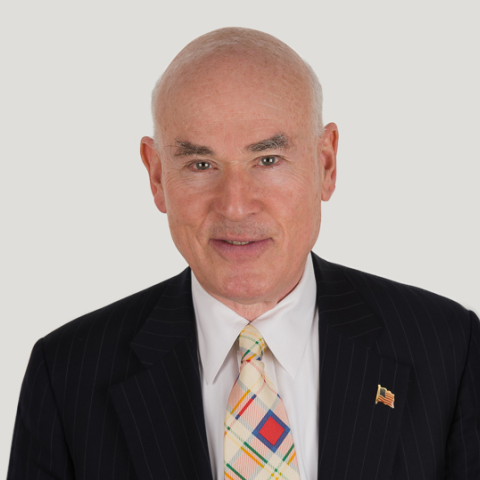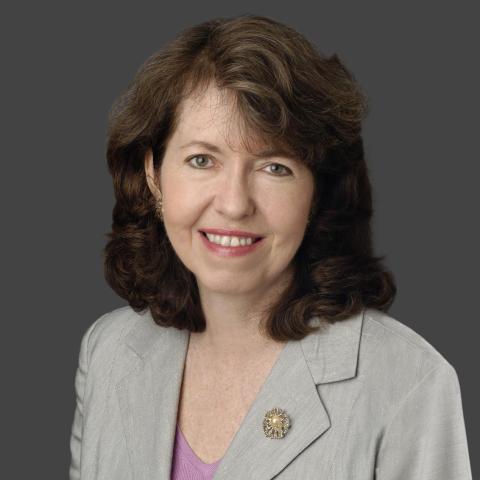"North Korea will never give up nuclear weapons." So says Kim Duk-hong, who should know. Mr. Kim is one of the highest-ranking North Korean officials to seek political asylum in the South. Before his defection, he served 16 years as a member of the powerful Central Committee of the Korean Workers Party. As such, he moved in the orbit of the country's founding dictator Kim Il Sung, who died in 1994, and his son, current dictator Kim Jong Il.
Which brings us to the story he told us this month in Seoul, where we spent an afternoon with him. The episode Mr. Kim recounted tells you all you need to know about Kim Jong Il and his unshakable commitment to North Korea's nuclear program. It also shows why giving North Korea food aid is a bad idea.
In the early 1990s, Mr. Kim told us, Kim Il Sung posed a question at a meeting of the military committee of the Workers Party. Kim Il Sung's question, and Kim Jong Il's reply, were disclosed in a memorandum that was distributed to every member of the Central Committee, including Kim Duk-hong. Colleagues who were present also told him what happened.
"The United States is demanding that we give up our nuclear weapons program," Kim Il Sung said. "What should we do? Give them up or not?"
The room was silent. Finally, Kim Jong Il spoke, saying he would answer his father's question.
"Nuclear weapons are Chosun," he said, using the North Korean word for Korea. "If we destroy our nuclear program, we may as well destroy ourselves."
Kim Il Sung then went on to praise his son, the defector related, saying that Kim Jong Il had the "guts" to resist U.S. demands and carry the nuclear program through to completion.
The lesson of this story, Kim Duk-hong says, is that nuclear weapons are Kim Il Sung's "legacy" to North Korea. Kim Jong Il regards them as part of his "heritage." "This," he explains, "is why he will never give them up."
Kim Duk-hong's assessment is supported by the history of the denuclearization agreements with North Korea. On Pyongyang's part, it is a history marked by lies, broken promises and clandestine programs, including illegal uranium-enrichment facilities. On the part of the U.S., the history is marked by gullibility and wishful thinking about North Korea's intentions to abide by its promises.
Even former U.S. President George W. Bush, who, in his first term, famously included North Korea in his "axis of evil," succumbed in his second term to the temptation to take Pyongyang at its word. The Obama Administration so far has resisted calls to return to the six-party talks on the North's nuclear program but shows signs of wavering.
In recent weeks North Korea has been seeking additional food aid from international donors, including the U.S. It cites a poor vegetable harvest last fall followed by an exceptionally severe winter. The United Nations World Food Program is currently evaluating the country's food supply.
Washington has rejected the request for aid, citing North Korea's refusal to allow proper monitoring to ensure that the food is not diverted to the military or the elites, as usually happens. Kim Duk-hong takes a tougher line. "We must not give food aid to North Korea" under any circumstances, he says. He gives two reasons.
If Kim Jong Il were serious about feeding his starving people, he says, he could divert resources from the nuclear program to food. International aid would relieve pressure on him to do that. "It is the same as providing funding for North Korea's nuclear program."
Second, and more important, Mr. Kim says, is the signal that international aid would send. In his view, Kim Jong Il would interpret aid as a sign of support for his nuclear program and an indication of the world's lack of seriousness. "He would take it to mean that we want to support North Korea's nuclear weapons." He repeats: "Don't send food aid."
Shortly after Mr. Kim and his boss, the late Hwang Jong-yop, defected in 1997, Kim Dae Jung was elected in the South and the two defectors were effectively silenced for a decade. South Korea's "sunshine" policy of opening to the North could not tolerate their testimony that North Korea could never be persuaded to give up its weapons program. Under Lee Myung-bak, the current president, the South is once again listening to what Mr. Kim has to say, but the debate over whether to engage the North rages on.
News reports suggest that North Korea is preparing for a third nuclear test. It's time to recognize that Mr. Kim is right and negotiating with North Korea to give up its nuclear weapons is a futile exercise.

















